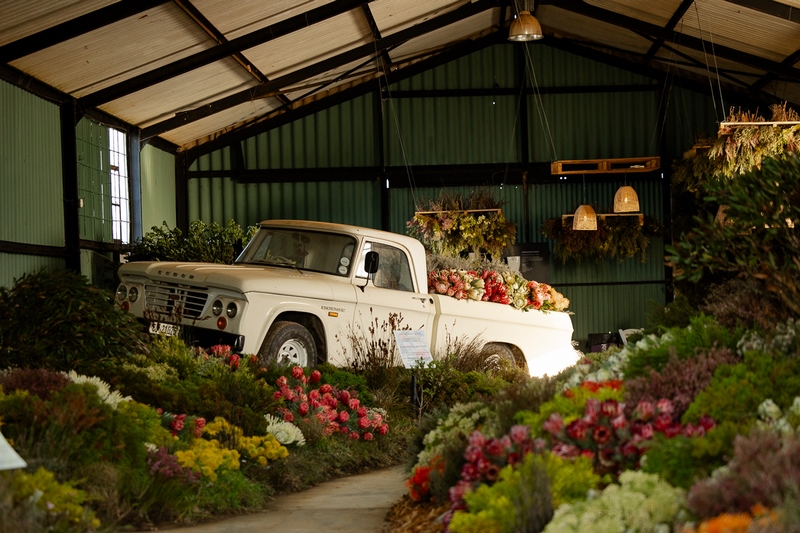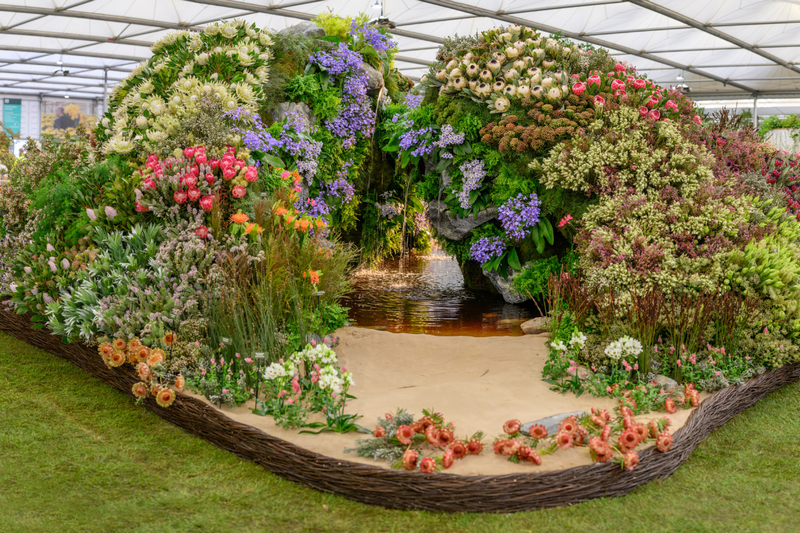September promises to be a remarkable month for the Overberg, with two flagship events drawing attention to farming, conservation, and rural enterprise. From 10 to 13 September 2025 Bredasdorp hosts Nampo Cape 2025, the premier showcase of agricultural innovation in the region. At the same time, Stanford welcomes visitors to Chelsea Flowers in Stanford, running from 10 to 24 September. Together, these events will put the Overberg firmly in the national spotlight, offering farmers both practical insights and a chance to reflect on the environmental systems underpinning agriculture.
Chelsea Flowers in Stanford is not simply a display of floral beauty. Organised by Grootbos Private Nature Reserve and the Grootbos Foundation, the event recreates South Africa’s gold medal-winning exhibit from the RHS Chelsea Flower Show in London. This year’s theme, designed by Leon Kluge and Tristan Woudberg, focuses on water as a life-giving force. A dramatic “mini-canyon,” complete with waterfalls, vertical gardens, and more than 25,000 stems, illustrates how rivers, rainfall, and ocean influences sustain the landscapes that farmers rely on. In a time of increasing climate stress and drought cycles, the display is both visually striking and agriculturally relevant.
Talks with Agricultural Relevance
Running alongside the floral showcase, the “Talks in Town” series brings together experts in horticulture and conservation, offering valuable insights for farmers. Gardening specialist Tanya Visser provides practical knowledge on drought-tolerant plants, mulching, and rainwater harvesting — topics highly relevant to agricultural water management. She also encourages diversification through edible gardens, blending food production with ornamental planting.
Tristan Woudberg explores plant adaptations and pollination in his talk The Great Flower Hunt, linking ecological diversity to crop resilience. His session Richtersveld in Bloom highlights the dramatic impact of rain on arid landscapes, echoing the challenges faced by farmers in marginal environments. Leon Kluge shares the behind-the-scenes story of South Africa’s Chelsea success, illustrating the skill and planning required to create large-scale displays that echo natural systems.
Cape botanist Rupert Koopman adds a historical and economic dimension with his presentation Protean Routes – History of the Flower Trade. By tracing the development of the fynbos industry, Koopman connects South Africa’s natural biodiversity to rural livelihoods and international markets, while stressing the importance of conserving threatened species.

Agriculture and Conservation in Harmony
What makes Chelsea Flowers in Stanford particularly significant for the agricultural community is its connection to conservation. Proceeds from the event support the Grootbos Foundation’s projects, which focus on protecting biodiversity while uplifting rural communities. For farmers, this underscores the interdependence of agriculture, ecology, and social development in the region.
As Nampo Cape showcases machinery, technology, and production innovation, Chelsea Flowers in Stanford offers a complementary perspective — one that highlights water, biodiversity, and ecological resilience. Together, the two events position the Overberg not just as a hub of agricultural activity, but also as a region where farming, conservation, and community growth go hand in hand.
This September, the Overberg will not only be buzzing with tractors and trade halls but also alive with flowers and conversations about the future of farming. For producers balancing productivity with sustainability, both events offer valuable lessons.
